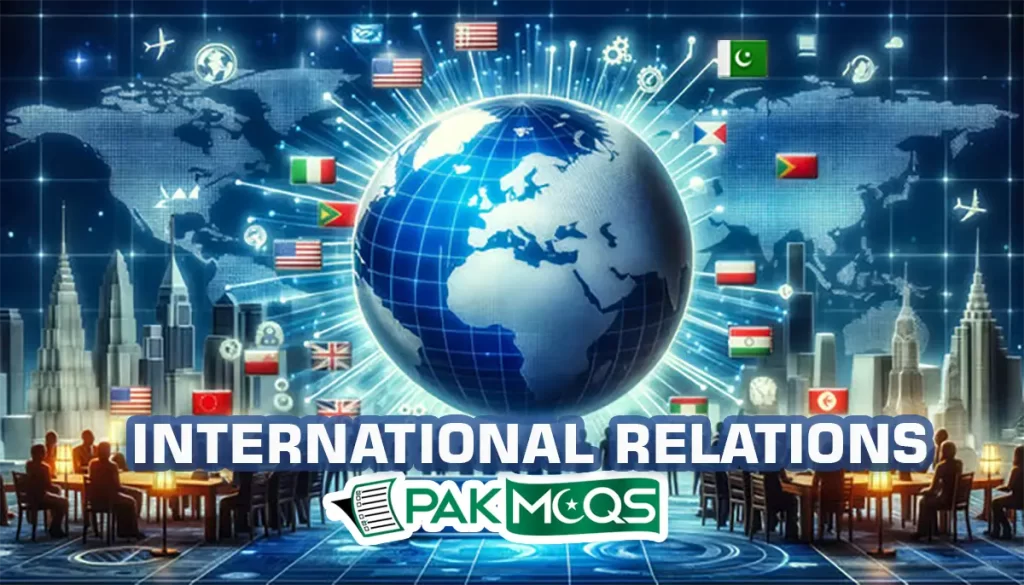A. defined a new age in world history so today the microchip and the satellite are icons of a globalized world order
B. evidenced a major expansion in the spread and entrenchment of European empires
C. saw the expansion of transnational and international law from trade to human rights
D. saw the establishment of the international Convention on the Elimination of Child Labour
International Relations
 International Relations for Preparation – These Multiple Choice Questions are important many competitive examinations, including Competitive Examination (CSS), and university entrance exams. International Relations Mcqs questions are very important for all type of exams conducted by Fpsc, Nts, Kppsc, Ppsc, Spsc, Bpsc, Ots, Uts, Pts, Cts, Ats, etea and other testing agencies of Pakistan.
International Relations for Preparation – These Multiple Choice Questions are important many competitive examinations, including Competitive Examination (CSS), and university entrance exams. International Relations Mcqs questions are very important for all type of exams conducted by Fpsc, Nts, Kppsc, Ppsc, Spsc, Bpsc, Ots, Uts, Pts, Cts, Ats, etea and other testing agencies of Pakistan.
A. the way in which contemporary globalization is equally experienced across the world and amongst different social gruops
B. the way in which contemporary globalization is unequally experienced across the world and amongst different social groups
C. the degree to which networks or patterns of social interaction are formally constituted as organizations with specific purposes
D. a process in which the organization of social activities is increasingly less constrained by geographical proximity and national territorial boundaries.
A. a benign form of cosmopolitan democracy.
B. equally experienced across the world and amongst different social groups
C. decisively shaped by European expansion and conquest
D. saw the establishment of the international Convention on the Elimination of Child Labour
A. a stretching of social, political, and economic activities across political frontiers.
B. a growing magnitude of interconnections in almost every sphere of social existence
C. an accelerating pace of global interactions and processes associated with a deepening enmeshment of the local and the global
D. all of the above
A. Poland from East Germany
B. the Soviet Union from East Germany
C. West Germany from the Soviet Union
D. West Berlin from East Berlin
A. containment of American military power
B. economic reform
C. support of developing world communist revolutions
D. detente with China
A. Eastern Europe’s stated desire to remain politically close to Russia
B. The division between Eastern and Western Europe over expanding membership in NATO
C. Eastern Europe’s support of the U.S decision to invade Iraq in 2003
D. Western Europe’s rejection of high agricultural subsidies in international world trade negutiations
A. an attempt to secure its natural reaources
B. an attempt to support the new Soviet policy of glasnost
C. an attempt to prevent the Soviet Union from gaining a seaport in the Horn of Africa
D. a proxy war with the Soviet Union
A. It cemented communist military control over Southeast Asia
B. It sparked a thaw in relations between the Soviet Union and china
C. It hardened overall American attitudes toward communism
D. It sparked a thaw in relations between China and the United States
A. China
B. Japan
C. Great Britain
D. the United States
E. the Soviet Union

